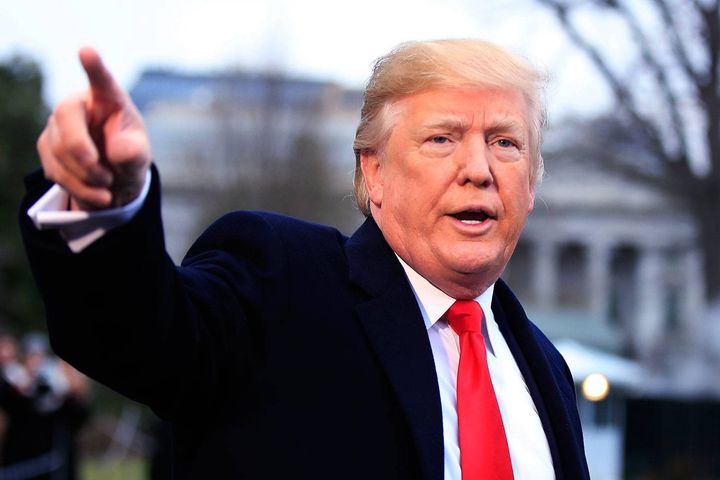 US Lodges Complaint Against China With WTO
US Lodges Complaint Against China With WTO(Yicai Global) March 26 -- US President Trump's administration, which has just imposed a unilateral tariff sanction per a Section 301 trade investigation against China, has begun to woo support from the same World Trade Organization that Trump has continuously smeared since the presidential election.
The gambit aims to win more favorable bargaining power in subsequent China-US trade negotiations, a source has told Yicai Global
The US Trade Representative Office (USTR) issued a statement saying that on the issue of leakage of intellectual property rights, the United States filed a complaint against China at the WTO on March 23 asserting that the Chinese government's measures regarding technology licensing deviate from the relevant provisions of the WTO Agreement on Trade-Related Aspects of Intellectual Property Rights.
"Whether the US initiates a Section 301 investigation or files a complaint with the WTO, the timing is very clever either way, with the purpose to win by applying high pressure in subsequent China-US talks," a trade dispute negotiator told Yicai Global.
US Litigation Filed at WTO Is 'Uncomplicated'
The document that USTR formally filed a complaint against China in at the WTO and which requested the commencement of consultations is less than three pages long compared with the 6-page memo and the 1,215-page Section 301 investigation ruling issued when the US administration invoked Section 301 to take unilateral trade remedy measures against China on March 23.
After reading the document, the intuitive feeling is that while relying on unilateral action to exert pressure, the US does not intend to completely abandon the multilateral stage, a senior negotiator between China and the US told Yicai Global. "It wants to save some face by discrediting China in an international organization after falling from the moral high ground."
From the perspective of WTO, (the litigation by the US) is not a very complicated issue, Tu Xinquan, dean of the China Institute for WTO Studies at the University of International Business and Economics, told Yicai Global. The possible outcome of the negotiations is that China will in the future more explicitly prohibit compulsory technology transfers in law and establish a corresponding relief mechanism, which is not a very complicated issue.
Judging from the US documents submitted to the WTO, there is no new special content, the senior source said. "For some time to come, both sides should calmly and rationally return to the negotiating table to solve the problem."
US Attends to China's Technological Progress
This round is a bit different from the past five intellectual property disputes between China and the US.
Compared with the 2007 dispute, this time the US focused on technology-related aspects, while at that time it was mainly on the copyright law, customs enforcement measures for counterfeit goods, and criminal sanctions. "(This) shows that with the improvement of China's economic and technological development level, the focus of attention of the US is also changing," Jin Haijun, a professor at the Renmin University of China Law School, told Yicai Global.
The US report on the Section 301 investigation contains too many speculations in the content of China imposing compulsory technology transfer and intellectual property rights without any solid evidence, Jin believes. Further, it should not be presumed that the Chinese government has imposed the technology transfer or licensing intellectual property rights between Chinese and foreign companies.